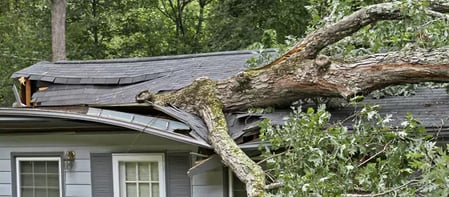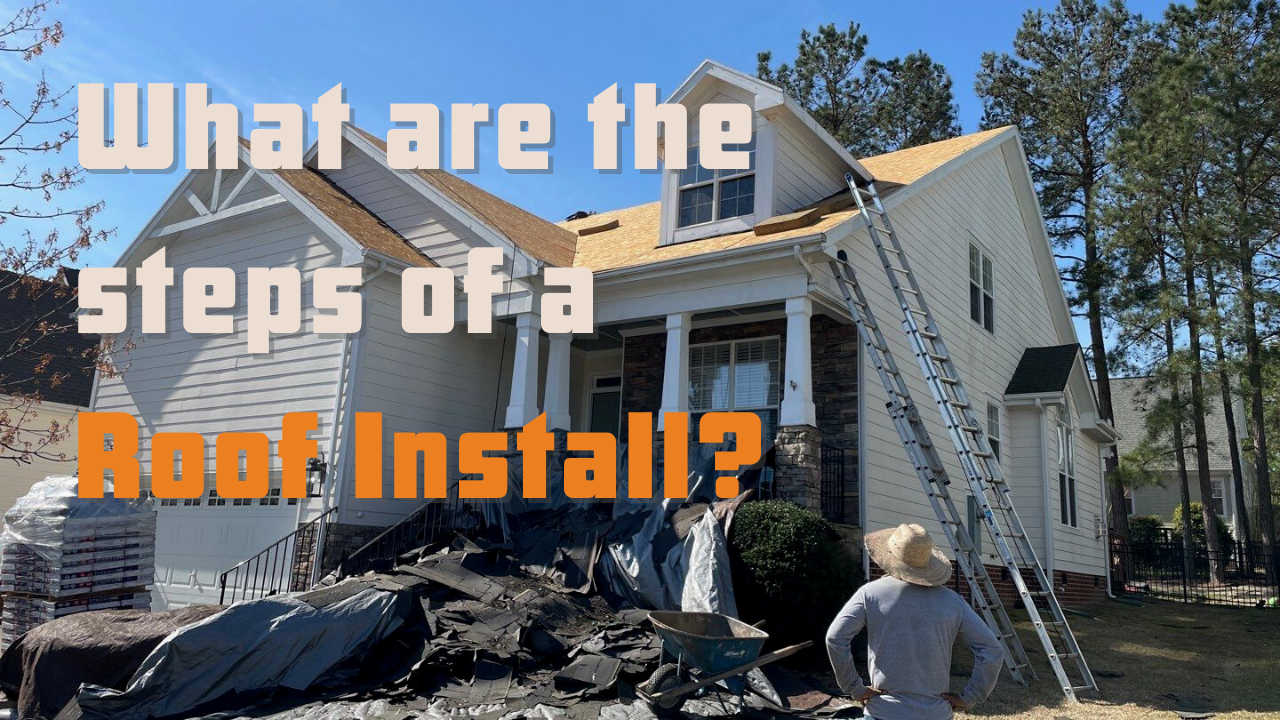5 Questions to Ask Your Roofing Contractor
Finding the right roofing contractor is the first big step in getting your roof replacement done right. But let's be honest, the search can sometimes...
After deciding you need a roof replacement, one of the first things you’ll probably start thinking about is how you’re going to pay for your new roof. Are you going to pay in cash? With a credit card? Can you file an insurance claim? Will you have to take out a loan?
The truth is, there are multiple ways to pay for a roof replacement. Each option offers its own benefits and disadvantages, so it's up to you to decide which choice is best for your wallet. Here are some factors to consider before choosing your method of payment:
In our 30+ years of experience, our homeowners have consistently asked to know their options for paying for their roofing projects. We want to educate them, and you, on every aspect of the replacement experience. We created this list of six common ways you can pay for your new roof to do just that. Let’s get into it.
The easiest way to pay for a roof replacement is with cash or check. What makes this method so simple? Well, there’s no complicated paperwork or approval process to bother with, besides the contract you’ll have to fill out with your roofing contractor. All that’s required is a deposit, then the remainder of the cost is paid after your roof is installed.

While we typically don’t accept deposits, other roofing companies will ask for a deposit of 10 to 30% of the project total prior to starting work to cover the upfront cost for materials, payroll, and equipment as needed.
Paying for your roof replacement with a credit card can be beneficial if your card has generous rewards and incentives, especially cash-back bonuses. For example, if your credit card offers 0% interest over 12 months, you can put the entire replacement on your card and then pay it off throughout the next year.
If your card has a high-interest rate, we don’t recommend using it to pay for your new roof. You’ll actually spend more money over time than you would have if you used another loan option to pay for your replacement.
You should also note that there will be a 3%-5% processing fee charged to your roofer when they run your card for payment. When your new roof has an approximate $10,000 price tag, those fees can add up to a pretty significant amount.
If you choose to pay with a credit card, your roofer will likely pass those fees back onto you. However, this could still be a viable choice if your credit card has optimal rewards and bonuses.
Loan approval factors vary depending on the lender, but you may be able to use a personal loan to pay for your replacement. The most common places to get a personal loan are financial institutions like Capital One, Wells Fargo, Bank of America, or local banks in your town.

You’ll need to shop around in order to save the most money on your personal loan. Creditors offer varying interest rates and repayment terms, so it’s important to consider both loan length and interest rate when looking for a lender.
Some loans will be short-term (2-6 years) while others will be long-term (15+ years). Interest rates can vary from under 5% to over 20%, depending on your credit score, income, and general creditworthiness determined by the lender.
According to the Federal Trade Commission, a home equity loan is a “loan for a fixed amount of money that is secured by your home.” Like a mortgage, these loans are repaid with fixed payments over a set term. For example, $99/month for 10 years.
Home equity loans are great if you have equity built up on your home and are looking for a non-variable payment schedule. Homeowners prefer this type of loan because interest rates tend to be much lower than they are for personal loans or roof financing.
However, there are downsides to home equity loans. The most significant drawback of a home equity loan is that the collateral for the loan is your house. This means that if you fail to make payments, the lender can foreclose on your home.
Lenders typically require great credit scores and consistent income to qualify for a home equity loan. If this sounds like you, then we suggest looking into it. You can use this formula to quickly calculate how much you might get from a home equity loan:
You can only borrow 85% of your available home equity by law, so if the current value of your home is $600,000 and you owe $500,000, then the remaining is $100,000. Now multiply that $100,000 by 0.85 (to get 85%), and your available home equity is $85,000.
Going through a rough storm can leave you worried about the state of your roof. If you have homeowner’s insurance, you can file a claim with your insurance company to cover any necessary repairs. However, the insurance process can be confusing if you haven’t been through it before.
If the cause of your roof damage is obvious, then it may be a bit easier. For example, if a tree falls through your roof, do whatever you can to make sure your insurance company pays for the replacement. But in less apparent circumstances, getting help from your homeowner’s insurance company can be very challenging.
If you think you may be eligible for insurance to cover your roofing project, then we recommend reaching out to your insurance agent directly to discuss a potential claim. Depending on your policy, once your claim has been approved, you’ll get an insurance check for your roof’s ACV or RCV. Below is a breakdown of each policy:
Once you receive these checks, you can deposit them and pay for your repair or replacement with the payment methods mentioned earlier (cash, check, credit card, etc.). While the insurance process can seem complicated, it should ultimately help you end up with a new roof that lasts for years to come.
If you don’t prefer to pay with cash or have any home equity to spend on a roof, some established roofers offer financing directly through their company or third-party financing vendors. Compared to home equity and personal loans, this process is much more straightforward because most of the steps will be done in-house.
If a roofer has access to resources that allow them to offer financing, it means they are in good standing with their own lenders and are likely a reputable company you can trust.
Now that you know six different ways you can pay for a new roof, you should feel more confident in your ability to pay for a replacement without putting too much strain on your wallet. But how much will your new roof actually cost?
We want to be as upfront with our homeowners as we possibly can. That’s why we wrote this article on 7 Factors That Could Impact the Cost of a New Roof.
If you have concerns about paying for your new roof, feel free to fill out the form below to talk to us about our financing options. We also offer free inspections and estimates to help you understand the total cost of your replacement before you even sign a contract with us. Whatever you need, we'd be happy to help.

Finding the right roofing contractor is the first big step in getting your roof replacement done right. But let's be honest, the search can sometimes...

Starting any roofing project, especially any roof replacement, is daunting for those going through it the first time. It’s a major construction...

Durham, and the surrounding towns in Durham County, have loads of roofing companies that serve the area. Not only are there several companies located...